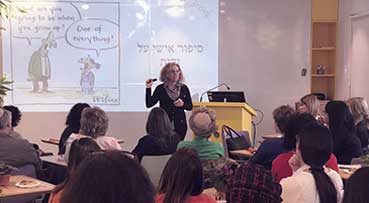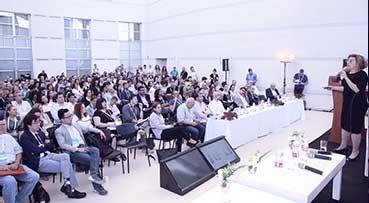As the world embraces the transformative power of artificial intelligence (AI), it poses challenges to the skills and capabilities required in the workforce. The World Economic Forum’s Future of Jobs Report has identified analytical thinking as the number one capability for the future of work. However, considering that AI will replace certain aspects of jobs in the coming years, and given that it excels at analytical thinking, it’s plausible that humans will need skills that are the opposite of what AI can offer.
I consulted ChatGPT to determine the opposite of analytical thinking, and it pointed me towards intuition. Intuition, as described by Wikipedia, is the ability to acquire knowledge without conscious reasoning or the need for explicit explanations. This includes accessing unconscious knowledge, relying on gut feelings, inner sensing, and instinctive understanding. When applied to the workplace, the concept of intuition, which was once closely associated with human expertise, will also undergo significant changes. If intuition encompasses deep understanding and subconscious insights that guide decision-making and problem-solving, then the integration of AI into professions suggests that intuition itself will be transformed.
AI has demonstrated its capacity to swiftly analyze vast amounts of data, identify complex patterns, and generate data-driven recommendations, surpassing human capabilities in certain domains. Professions that previously relied on intuition for tasks such as pattern recognition, risk assessment, and forecasting can now augment human intuition with AI to achieve greater accuracy and efficiency.
For instance, AI algorithms are revolutionizing medical diagnosis by analyzing extensive patient data, identifying patterns and anomalies, and aiding healthcare professionals in making precise diagnoses and formulating treatment plans. In the financial sector, AI-powered investment platforms leverage sophisticated algorithms to analyze market trends, historical data, and economic indicators. This complements human intuition by providing real-time insights, reducing risks, and optimizing portfolio management.
Legal professionals also benefit from AI-driven platforms that expedite thorough research and facilitate the identification of relevant legal precedents. This allows lawyers to focus on strategic analysis and creative problem-solving. Supply chain management has also witnessed significant changes as AI algorithms transform inventory optimization, streamline distribution processes, and enhance overall operational efficiency.
Moreover, AI-powered recruitment platforms have revolutionized talent acquisition by analyzing resumes, screening candidates, and providing potential matches. HR professionals can now objectively assess candidate qualifications and match them with job requirements, streamlining the initial stages of recruitment while optimizing time and resources.
These examples highlight professions that previously relied on years of experience and intuition to make informed decisions. However, as AI technology and associated tools continue to advance, more professions will gain access to elements of “intuition” that previously required extensive experience and knowledge. This shift underscores the significance of other aspects of human intuition in the era of AI:
Contextual Understanding: With AI providing data-driven insights, human intuition becomes crucial in interpreting and applying these insights within specific contexts. Professionals need to possess a deep understanding of social dynamics, cultural nuances, and emotional factors that AI may struggle to comprehend. For instance, a marketing strategist must interpret AI-generated customer data while considering cultural sensitivities to develop effective campaigns. Professionals can enhance this skill by engaging in cross-cultural learning, cultural immersion programs, and leveraging ethnographic research techniques.
Creative Problem-Solving: While AI algorithms excel at pattern recognition and data analysis, creative thinking remains a distinct human capability. Human intuition drives innovation by making connections, thinking laterally, and developing novel solutions to complex problems. Professionals can foster creative problem-solving by embracing diverse experiences, engaging in brainstorming sessions, seeking inspiration from unrelated fields, and practicing techniques like design thinking and ideation exercises.
Ethical Decision-Making: The ethical implications of AI-driven decisions require human intuition for discernment. While AI can process vast amounts of data, it lacks moral values and a complete understanding of complex ethical dilemmas. Ethical decision-making, rooted in intuition, ensures professionals consider broader societal impacts and uphold moral principles. Professionals can enhance ethical decision-making by participating in ethics training, engaging in ethical forums and discussions, and seeking diverse perspectives.
Emotional Intelligence AI’s analytical power falls short in understanding and responding to human emotions and nuanced social interactions. Intuition enables professionals to empathize, interpret non-verbal cues, and navigate complex human dynamics. To cultivate emotional intelligence, professionals can practice active listening, engage in empathy-building exercises, seek feedback on their interpersonal skills, and invest in personal development programs focused on emotional intelligence and effective communication.
Critical Evaluation of AI: Human intuition plays a pivotal role in critically evaluating AI-generated insights and recommendations. Professionals must question underlying biases, assess the limitations of AI algorithms, and discern when to trust or override AI’s suggestions. To enhance critical evaluation skills, professionals can stay updated on AI advancements, engage in AI ethics courses, participate in AI community forums, and actively seek diverse perspectives to challenge and validate AI-generated insights.
As AI increasingly intersects with human intuition, the future of work requires a mindset that embraces the evolving relationship between humans and technology. While AI augments and automates certain aspects of intuition, it cannot replace the broader cognitive, emotional, and ethical dimensions that define human expertise. Professions will require individuals who can navigate complex contextual nuances, think creatively, demonstrate emotional intelligence, and make ethically informed decisions. By leveraging the power of AI to enhance their intuition, individuals can unlock new levels of productivity, efficiency, and innovation.
Remember, the future is not about humans versus machines; it is about humans and machines collaborating synergistically to achieve remarkable outcomes. Let us embrace the transformative power of AI while nurturing and enhancing the unique qualities that make us human. Together, we can shape a future of work that combines the best of human intuition and AI capabilities.

![large-AX1A2125-2[1] large-AX1A2125-2[1]](https://dev.niritcohen.com/wp-content/uploads/elementor/thumbs/large-AX1A2125-21-pnzedcs72atx5aeurqytqdiihxixlq02re9mlz805s.jpg)






